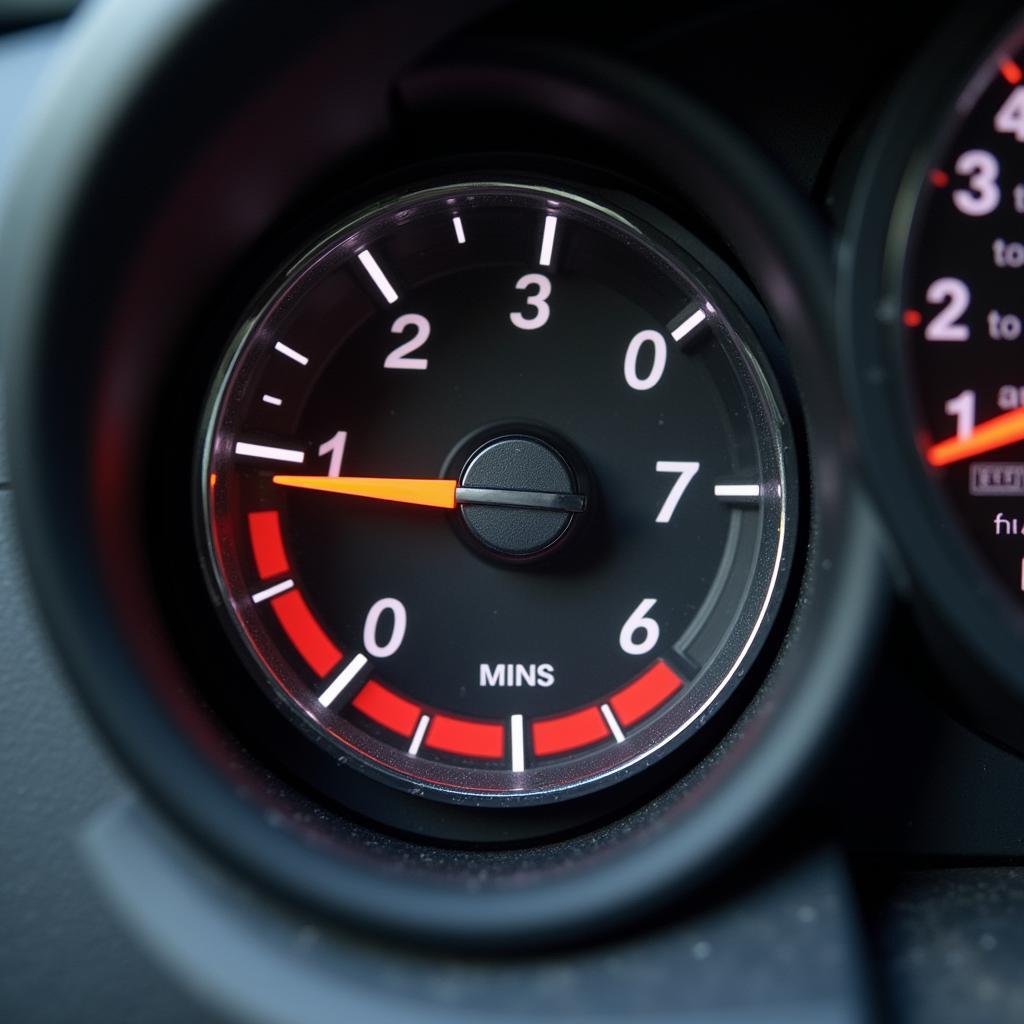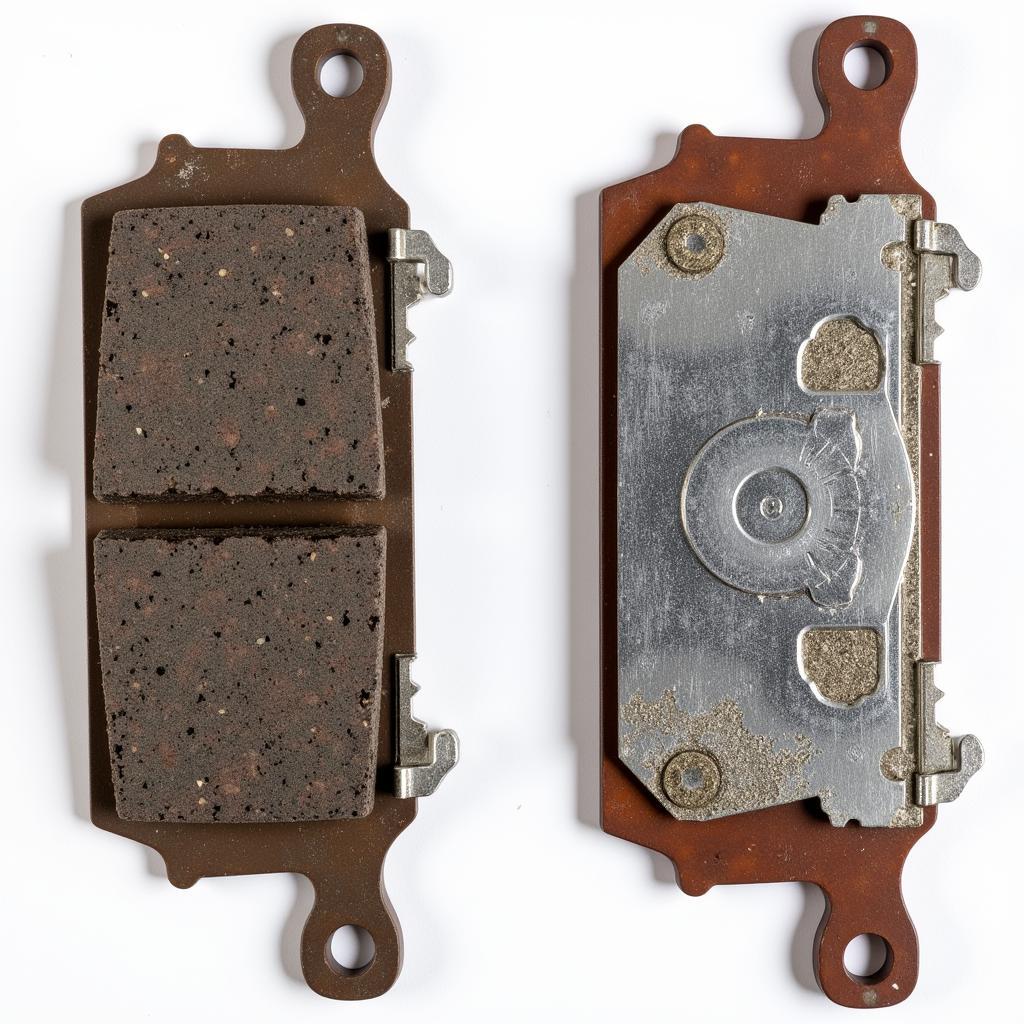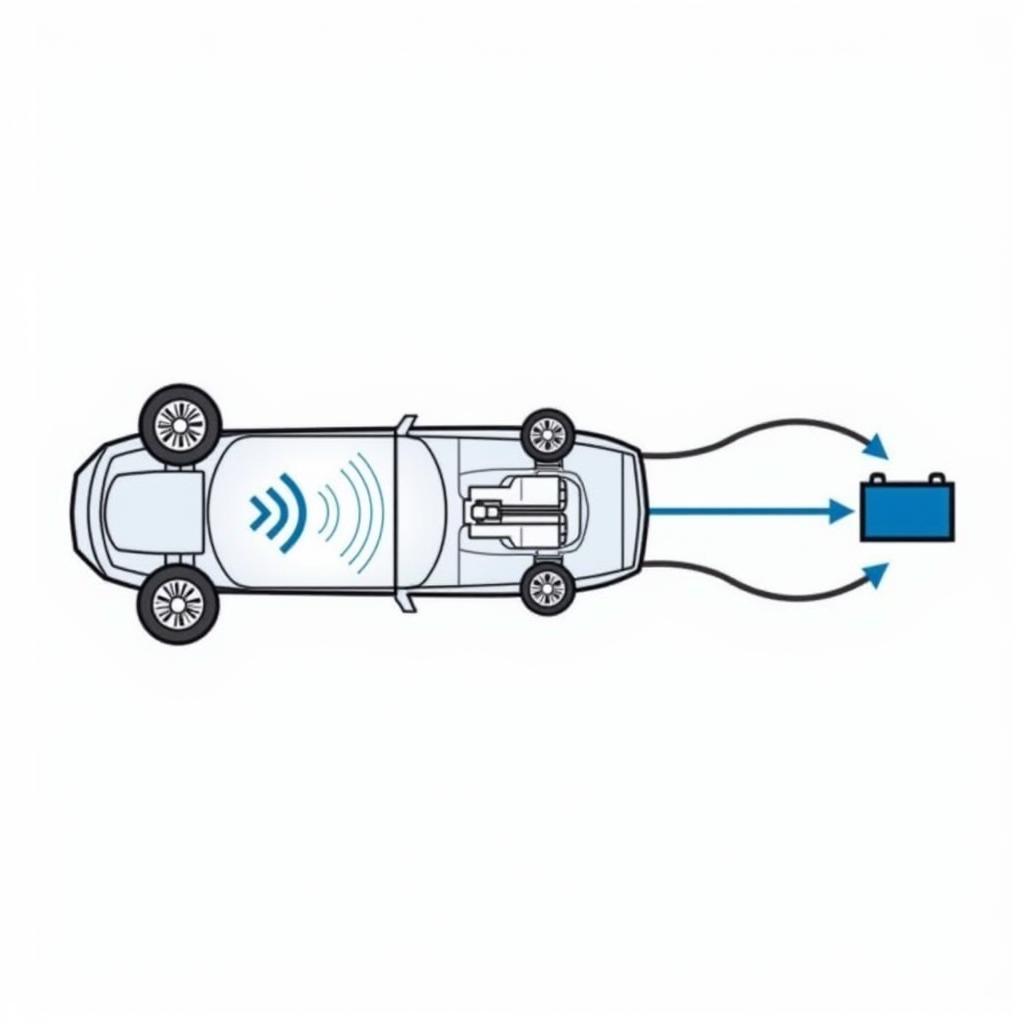The brake warning light on your 2003 Honda Accord is a crucial safety feature that shouldn’t be ignored. When illuminated, it signals a potential issue within your braking system that needs immediate attention. While a simple parking brake slip-up can be the culprit, other possibilities require a closer look.
Understanding Your Honda Accord’s Brake System
Before diving into the reasons behind a glowing brake warning light, it’s helpful to understand the basics of your Accord’s braking system. It’s primarily comprised of:
- Hydraulic System: This network of brake fluid-filled lines, a master cylinder, and calipers applies pressure to the brake pads, effectively slowing or stopping your vehicle.
- Parking Brake: This cable-activated system mechanically locks the rear brakes, preventing the vehicle from rolling when parked.
- Anti-Lock Braking System (ABS): This sophisticated system prevents wheel lockup during hard braking, maintaining steering control and stability.
Common Causes of a 2003 Honda Accord Brake Warning Light
Here’s a breakdown of the most frequent reasons your brake warning light might be on:
1. Engaged Parking Brake
Is your parking brake partially or fully engaged? This is the most straightforward explanation. Often, disengaging the parking brake completely will extinguish the warning light.
2. Low Brake Fluid Level
Brake fluid is the lifeblood of your Accord’s braking system. A leak anywhere in the system can lead to a drop in fluid level, compromising braking performance.
 Low brake fluid reservoir
Low brake fluid reservoir
How to check your brake fluid:
- Locate the brake fluid reservoir under the hood.
- Check the fluid level against the “MIN” and “MAX” markings on the reservoir.
- If the level is low, add the recommended brake fluid for your Honda Accord.
Important: Driving with low brake fluid is incredibly dangerous. If you suspect a leak, have your braking system inspected by a qualified mechanic immediately.
3. Worn Brake Pads
Brake pads naturally wear down over time. As they thin, your brake warning light might illuminate, signaling it’s time for a replacement.
 Worn out brake pads comparison
Worn out brake pads comparison
Signs your brake pads need replacing:
- Squealing or grinding noises when braking.
- Vibration in the brake pedal.
- Vehicle pulling to one side when braking.
Important: Driving with worn brake pads reduces your stopping power and can damage other brake components.
4. Faulty Brake Light Switch
The brake light switch activates your brake lights when you press the pedal. A malfunctioning switch can cause the brake warning light to come on, often accompanied by non-functioning brake lights.
5. ABS Issues
Problems within the ABS system, such as a faulty wheel speed sensor or ABS module, can trigger the brake warning light. This usually requires a professional diagnosis using a specialized scanner.
“A common misconception is that the brake warning light always means you need new brake pads,” says master mechanic, John Smith, owner of Smith’s Automotive. “While worn pads are a possibility, it’s essential to rule out other potential culprits, especially if you’ve recently had your brakes serviced.”
Troubleshooting Your 2003 Honda Accord’s Brake Warning Light
- Check the Obvious: Ensure your parking brake is fully released.
- Inspect Brake Fluid Level: If low, add brake fluid and monitor the level closely. A rapid decrease indicates a leak requiring professional attention.
- Listen for Noises: Squealing or grinding when braking suggests worn brake pads.
- Observe Brake Light Function: If your brake lights aren’t working correctly, the brake light switch might be the problem.
Conclusion
A glowing brake warning light on your 2003 Honda Accord is a clear sign that something isn’t right. While a simple fix like releasing the parking brake or topping off brake fluid might do the trick, more complex issues necessitate the expertise of a qualified mechanic. Ignoring this warning light puts your safety and the safety of others at risk. Don’t delay – address the issue promptly to ensure reliable braking performance.

